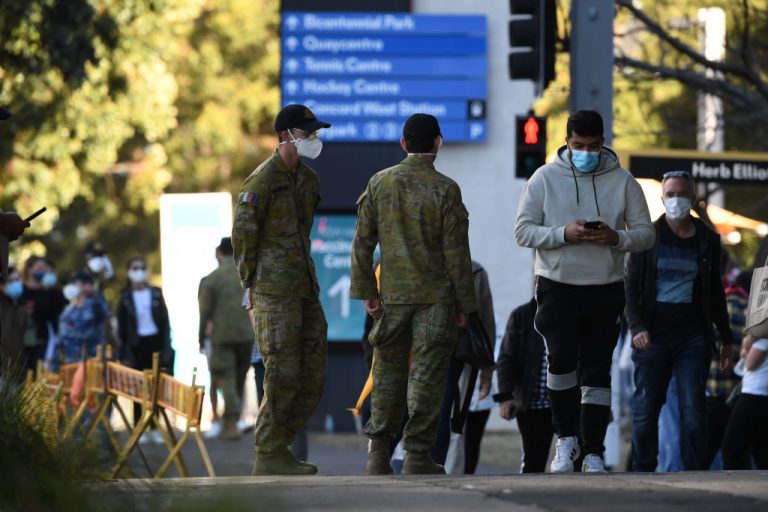The state of South Australia has rolled out an app that relies on geolocation and facial recognition-based randomized check-ins to enforce a government mandated 14-day quarantine as the federal government alluded to reopening borders to international travel.
The app, Quarantine SA, is described by the South Australia government’s website as providing a “a safe, sustainable and cost effective alternative” to hotel quarantine. The government currently requires a 14-day quarantine under three circumstances:
- Arrival in South Australia from overseas;
- A positive PCR test for SARS-CoV-2, the virus that causes Coronavirus Disease 2019 (COVID-19); or
- Having been in “close contact” with a person who has tested positive.
South Australians are required to provide their full legal name, date of birth, predefined quarantine address, mobile phone number, and email address to use the app.
Quarantine SA uses “several” randomized check-ins verified by facial recognition and device geolocation each day to ensure the user remains at their quarantine address. Users have 15 minutes to respond to a random check. The website notes if a user misses a check-in, they will receive a phone call and be asked to explain themselves.
If they miss the phone call, law enforcement will be deployed.
Success
You are now signed up for our newsletter
Success
Check your email to complete sign up
According to the Australian Broadcasting Corporation (ABC), the app has been in play since early August for quarantine subjects returning from the states of New South Wales and Victoria. The article notes users “will have to prove they have a place to isolate during their quarantine period and must also be fully vaccinated” to qualify to use the app instead of being placed in a quarantine facility.
In the article, Premier Steven Marshall said that it was “implausible” to continue to use quarantine hotels for international travellers when borders reopened. He added that without the app “a very heavy police presence” was needed “to go and check on” home quarantine subjects.
On Sept. 4, ABC reported more than 500 people in South Australia, tagged through contact tracing, were currently being subjected to the 14-day quarantine program as a result of five truck drivers registering a positive PCR test. Premier Marshall framed the measures as South Australia having “dodged a bullet.”
South Australia, which is home to more than 1.7 million people, only has 6 active cases, according to the government’s dashboard.
Marshall, like many other leaders in the western world, linked measures to vaccine acceptance when he said, “Longer term what we’ve got to do is make sure we get as many people vaccinated as quickly as possible here in South Australia. I’m delighted with the vaccination rates at the moment.”
‘Extreme and dangerous’
“No matter your views of COVID, what’s happening in Australia is alarming, extreme and dangerous,” tweeted Journalist Glenn Greenwald on Sept. 2 in response to an article published in The Atlantic, which called Quarantine SA a measure “as Orwellian as any in the free world.”
At the end of August, the Australian state of Queensland announced construction of a “regional quarantine facility” that is anticipated to house 500 people by the end of 2021 and 1,000 people by the end of Q1 2022.
Queensland Premier Annastacia Palaszczuk said in a statement the quarantine camp was for the purpose of creating an alternative to hotel quarantine. Deputy Premier Steven Miles said, “Quarantine facilities will remain one of Australia’s frontline defences in preventing deadly new strains of COVID-19 from entering our community,” while also claiming the “Accommodation Centre” would prevent lockdowns and protect jobs.
In Victoria, Premier Daniel Andrews, a signatory to the Chinese Communist Party’s Belt and Road Initiative hegemony and debt trap project, has subjected citizens to multiple, extended lockdowns and curfews, in addition to suspending parliament. In a January article by the Brookings Institution, author John Lee, a Senior Fellow at the Hudson Institute, noted “To put this in context, federal and state parliaments sat during both world wars and the Spanish Flu, and curfews have never been imposed.”
The Spanish Flu killed, depending on estimates, between 17 to 100 million people during a period spanning February 1918 to April of 1920, according to Wikipedia. As of Sept. 6, Google reports 4.55 million deaths associated with COVID-19 worldwide since the outbreak first began as early as October of 2019 in Wuhan City.
In June, a man in the Northern Territory state was arrested by police and handed a $5,000 fine for drinking coffee in public without wearing his mask at the same time. The man’s town, Alice Springs, had a “snap” 72-hour lockdown imposed on it after a single granite miner registered a positive PCR test.
The Atlantic asked, “Australia is undoubtedly a democracy, with multiple political parties, regular elections, and the peaceful transfer of power. But if a country indefinitely forbids its own citizens from leaving its borders, strands tens of thousands of its citizens abroad, puts strict rules on intrastate travel, prohibits citizens from leaving home without an excuse from an official government list, mandates masks even when people are outdoors and socially distanced, deploys the military to enforce those rules, bans protest, and arrests and fines dissenters, is that country still a liberal democracy?”
“Enduring rules of that sort would certainly render a country a police state. In year two of the pandemic, with COVID-19 now thought to be endemic, rather than a temporary emergency the nation could avoid, how much time must pass before we must regard Australia as illiberal and unfree?”

















